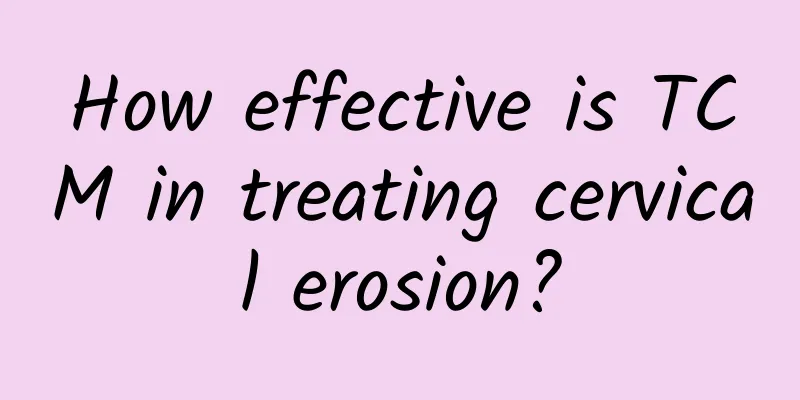Patients with hyperprolactinemia must use medication scientifically

|
Hyperprolactinemia patients must use medicine scientifically. Hyperprolactinemia is not only very common, but also harmful to women's bodies. Most of the time, there are no symptoms. We should pay more attention to such symptoms, otherwise it will be too late when we find them. Let's take a look at what medicine is good for hyperprolactinemia? What medicine is good for hyperprolactinemia Drug treatment 1. GnRHa is a new type of anti-gynecological drug in recent years. After continuous use in large quantities, pituitary cell receptors are filled with hormones and cannot synthesize and release FSH and LH; GnRHa is a new type of anti-gynecological drug in recent years. In addition, LHRH has extrapituitary effects. Large doses of LHRH increase the number of LHRH receptors on the ovaries, reducing the ovaries' ability to produce estrogen and progesterone. 2. Danazol has a weak androgenic effect. Danazol inhibits the function of the hypothalamus and pituitary gland, causing the FSH and LH levels to decrease, thereby inhibiting the production of ovarian steroids. It can also directly inhibit the enzymes that produce ovarian steroids. As a result, the estrogen level in the body decreases, inhibiting the growth of the uterus, causing the endometrium to shrink and amenorrhea. At the same time, prolactin also shrinks and becomes smaller. 3. Cottonpol is a dialdehyde naphthalene compound extracted from cotton seeds. It acts on the ovaries, has no inhibitory effect on the pituitary gland, has a specific atrophic effect on the endometrium, and also has an inhibitory effect on endometrial receptors, causing a degenerative effect on uterine muscle cells, resulting in pseudomenopause and uterine atrophy. This drug is known as the Chinese Danazol. It is used to treat hyperprolactinemia and its efficacy in improving symptoms is 83.7%, while the reduction of prolactin is 62.5%. 4. The use of vitamins to treat hyperprolactinemia is that it can reduce the sensitivity of the uterine muscle layer to estrogen, regulate the neuroendocrine system, normalize steroid hormone metabolism and promote the reduction of prolactin. Vitamins for the treatment of hyperprolactinemia 5. Androgens counteract estrogen, control uterine bleeding, menorrhagia and prolong the menstrual cycle. 6. Progesterone is, to a certain extent, an antagonist of estrogen and can inhibit its effects. Therefore, some scholars use progesterone to treat hyperprolactinemia accompanied by persistent follicles. According to the specific situation of the patient, pseudo-pregnancy therapy can be performed periodically or continuously to denature and soften prolactin. However, it is not suitable for long-term use because it can cause tumor enlargement and irregular uterine bleeding. |
<<: Long-term medication for hyperprolactinemia
>>: What are the essential drugs for treating hyperprolactinemia?
Recommend
What causes uterine fibroids to shift? Is uterine fibroids shifting seriously?
What causes uterine fibroids to shift? Is uterine...
Liver protection campaign! Give you a colorful life, nutrition tips
The liver is the most important chemical factory ...
How to care for cervicitis in women in daily life? Check out 5 principles of cervicitis care
The nursing method for cervicitis is very simple....
How is primary dysmenorrhea diagnosed?
What is primary dysmenorrhea? How is primary dysm...
Women should beware of cervical erosion causing infertility! Women should avoid eating too much of these six foods to prevent infertility
We all know that the incidence of cervical erosio...
Why can't you eat bananas when you have uterine fibroids?
Why can't patients with uterine fibroids eat ...
What causes cervical contact bleeding?
There are many reasons for cervical contact bleed...
Women should pay attention to the increase of leucorrhea and be alert to the occurrence of adnexitis
In our lives, women are more likely to suffer fro...
Pay attention to details in daily care of endometrial tuberculosis
For many diseases, treatment knowledge plays a ro...
Eat tofu to slim your hips and lose weight, it is great with vegetables
There are many benefits to eating tofu. Studies h...
Daily care measures for patients with cervicitis
Cervicitis is a common disease among married wome...
What are the misunderstandings in the treatment of vulvar leukoplakia?
What are the misunderstandings about the treatmen...
Study: COVID-19 infection affects bone health! 3 ways to test and understand the quality of action
The cumulative number of people infected with the...
How much does it cost to treat intrauterine adhesions?
Intrauterine adhesions are a gynecological diseas...
What is the reason for irregular menstruation in an 11-year-old girl? There are 7 reasons for irregular menstruation in an 11-year-old girl.
Many women have irregular menstruation problems, ...









